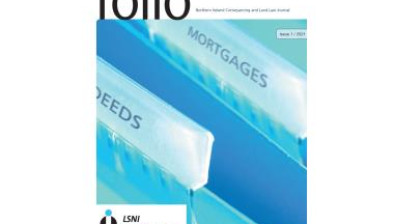NI High Court: Decade-long ‘doomed to fail’ dispute over Belfast land sale dismissed

The High Court has dismissed all seven headings of a land conveyance counterclaim, deeming it to be “clearly an abuse of process”.
The plaintiffs, solicitor Andrea McIlroy-Rose and her late father John McIlroy, issued proceedings in 2016 seeking injunctive relief and damages for an alleged campaign of harassment undertaken by the defendant, Robert McKeating.
Mr McKeating served a defence and counterclaim in the action, alleging that the plaintiffs were guilty of fraud, breach of contract, misrepresentation, negligence, breach of fiduciary duty, conversion, conspiracy and fraudulent misstatement, all allegedly stemming from a land purchase agreement.
Mr Justice Michael Humphreys ultimately dismissed the counterclaim as it failed to disclose any reasonable cause of action.
Background
The defendant is one of four sons of the late Mr Fred McKeating Senior. His brothers are Fred Junior, Dominic and James. Fred Senior owned 0.64 acres of land in Nelson Street/Little Patrick Street in Belfast. It was agreed that a joint venture company would be formed between Fred Sr. and Ruskin Developments Limited, called Ruskin & McKeating Developments Limited, to purchase the lands.
The terms of the JV agreement entered into in July 2004 were that Mr McKeating Senior would provide his lands, which had a notional value of £900,000, and Ruskin would provide financial contribution of £900,000 to the JV company. Both parties to the JV agreement owned 50 per cent of the company.
Fred Senior transferred the lands into the joint names of himself and his wife by a deed dated 2 April 2004. On 11 February 2005, the lands were transferred into the sole name of the eldest son, Mr Fred McKeating Junior. The defendant’s father passed away in February 2006. In his will, executed in July 2003, Mr McKeating Senior had sought to bequeath the lands in various proportions to his wife and children, including five per cent to the defendant. However, by virtue of the transfers of the lands which occurred in 2004 and 2005, the lands were adeemed.
Mr McKeating Junior, in his capacity as beneficial owner, transferred part of the lands to Ruskin and part to RMKD by separate conveyances dated 28 June 2006. The part of the lands then owned by Ruskin was sold to Big Picture Developments Limited on 31 July 2006.
The counterclaim
The defendant’s counterclaim sought to set aside the transfer of the lands and claimed damages against each of the defendants to the counterclaim.
The defendant argued that his father intended to develop the lands by way of social housing, in keeping with his altruism and close connection to the local community. The JV agreement foresaw development of both social housing and a building for the then Department of Health and Social Services.
The part of the lands earmarked for social housing was transferred to Ruskin (rather than RMKD) for the purpose of stamp duty savings, but also on foot of representations made that Clanmil Housing, the developer, would pull out of the deal unless these lands were transferred immediately. Later, these lands were flipped to Big Picture Developments Limited, a company controlled by the first and fifth defendants to the counterclaim, for £3.5 million, thereby generating a profit for Ruskin.
The defendant alleges that the second defendant to the counterclaim, who was employed by the NIHE as its director of housing and regeneration, was connected to the transactions through his son, the third defendant to counterclaim, who was employed by Big Picture. The pleadings argued that the conspiracy extended to the sale of other development lands at a significant undervalue to a separate company under the control of the sixth defendant to the counterclaim. These seven heads of claim are outlined below.
(i) Conspiracy
Ultimately, the counterclaim argued that: “This was a carefully planned conspiracy, devised and supported by the plaintiffs, Kevin Lagan, Barry Gilligan and Mr McCaughley in the NIHE to (a) defraud the McKeatings of their land (b) transfer it to Barry Gilligan and (c) create a vast profit by having the entire parcel rezoned as development opportunity land”.
However, loss or damage is an essential element of this tort, and here the court found that the defendant had sustained no loss as a result of the alleged conspiracy, and there existed no special circumstances allowing him to pursue the claim. The court further emphasised that the fact that some of the plaintiffs and the defendants to the counterclaim had business connections did not suffice to prove a conspiracy.
(ii) Fraud
The counterclaim alleged that the plaintiffs falsely asserted that Clanmil Housing was threatening not to complete the sale of the land. The defendant says that the lands would never have been transferred but for the representation that they would be developed by Clanmil and used for the purpose of social housing.
The court found, however, that at all material times, the first plaintiff was acting for Ruskin, not for any of the other individuals sued in the counterclaim. There was no case made that any of the first to sixth defendants to the counterclaim made any actionable representations.
(iii) Breach of fiduciary duty
No facts were pleaded in the counterclaim as to why any of the plaintiffs or the defendants to the counterclaim owed a fiduciary duty to the defendant, whether in his personal capacity or as a beneficiary under an alleged trust. A trustee owes fiduciary duties to the beneficiaries of a trust but no action had been taken against him.
(iv) Misrepresentation
The same conclusions were drawn as with (ii) above.
(v) Negligence
Again, no facts were pleaded in the counterclaim to indicate that any of the plaintiffs or defendants to the counterclaim owed a duty of care to the defendant.
(vi) Breach of contract
No proper particulars were given in the counterclaim outlining this claim, but the only agreement referenced was the JV agreement of July 2004. None of the parties to the proceedings owed any obligations pursuant to the JV agreement and therefore any claim for breach of contract against the plaintiffs or the defendants to the counterclaim was, in the words of the court, doomed to fail.
(vii) Conversion
The tort of conversion affords protection to property rights in respect of chattels. No chattels belonging to the defendant had been interfered with, and therefore this claim was held by the court to be “incontestably bad in law and would be struck out”.
Henderson v Henderson
The court did make instructive comments about the rule in Henderson v Henderson [1843] 3 Hare 100, which gives a court the power to strike out a claim as an abuse of process in circumstances where the doctrine of res judicata does not strictly apply, but where an issue has been raised which could or should have been determined in earlier proceedings.
In the present case, in 2009, the defendant was sued by Kevin and Michael Stanley in respect of trespass to the lands which were transferred by Fred McKeating Junior to Ruskin in 2006. The defendant was legally represented then, and it was clearly open to him to claim that he was a beneficial owner of the lands, given the trust which was allegedly created in 2006. Alternatively, the judge noted that the defendant could have made the case that Kevin Stanley was party to some fraud or conspiracy by which he had acquired the title to the Ruskin part of the lands.
Instead, the defendant consented to the making of a permanent injunction against him restraining him from entering the lands. The court held that it was “simply inconceivable that this course of action would have been taken had the defendant enjoyed a viable and arguable defence”.
As such, had the defendant here shown any reasonable cause of action against the plaintiffs or the defendants to counterclaim, the judge would have struck out the counterclaim, representing an abuse of the process of the court in line with the rule in Henderson v Henderson. If the defendant had a viable case, it ought to have been raised in those proceedings 12 years ago in 2009.
Conclusion
The High Court made an order dismissing the counterclaim, relying on Order 18 rule 19(1)(a) of the Rules of the Court of Judicature (NI) 1980, in that the counterclaim failed to disclose any reasonable cause of action.












